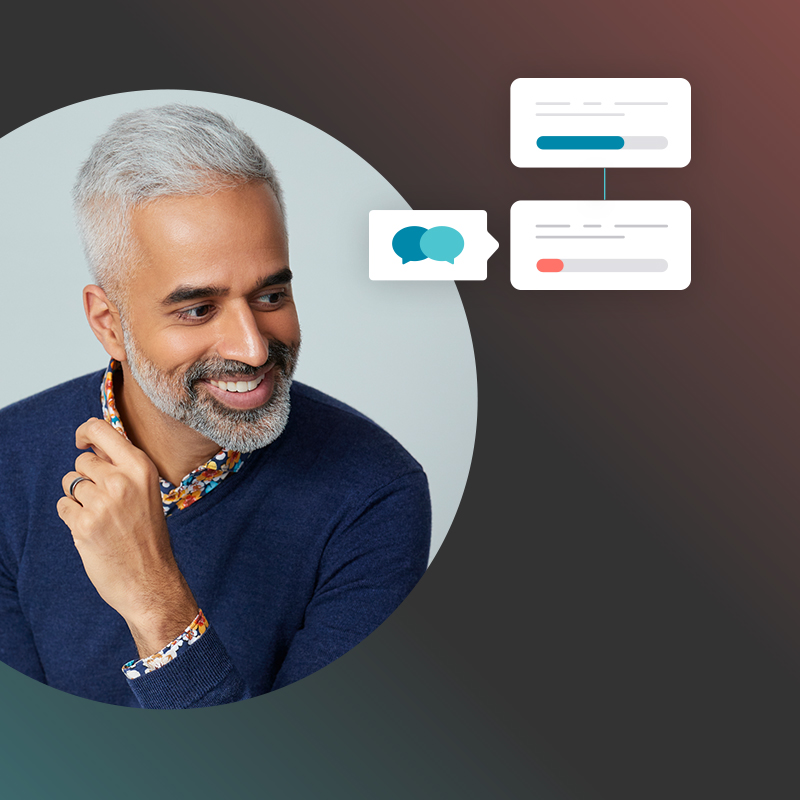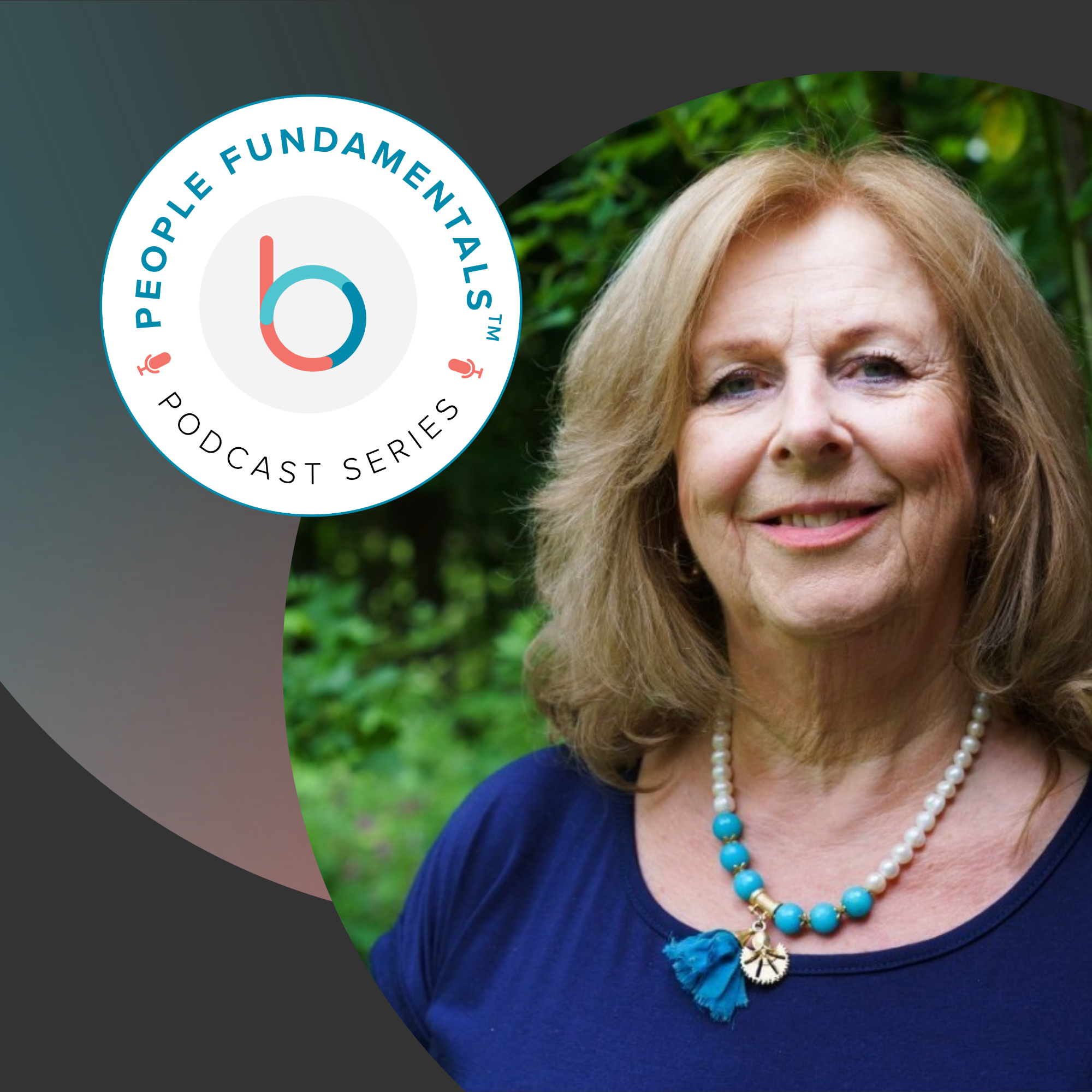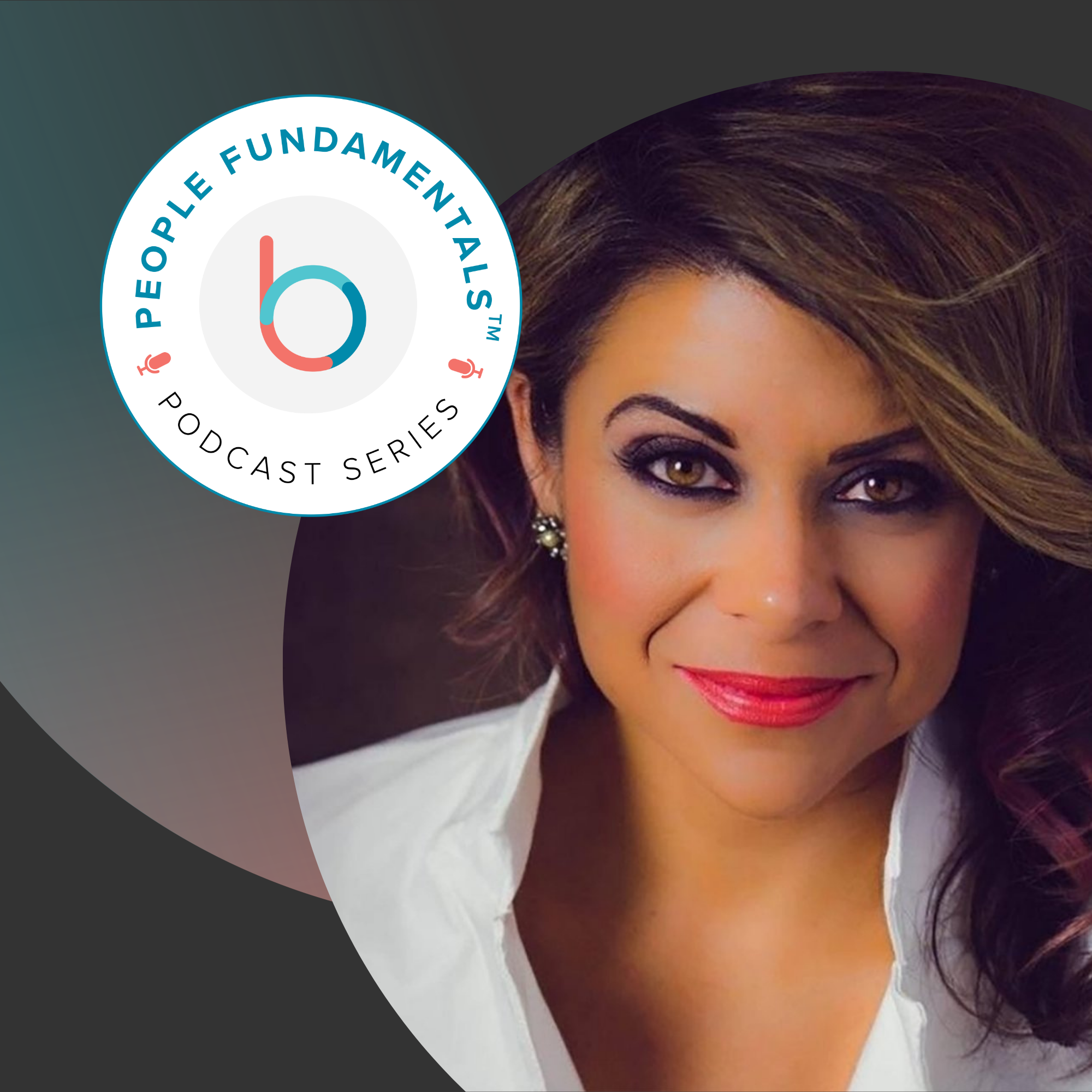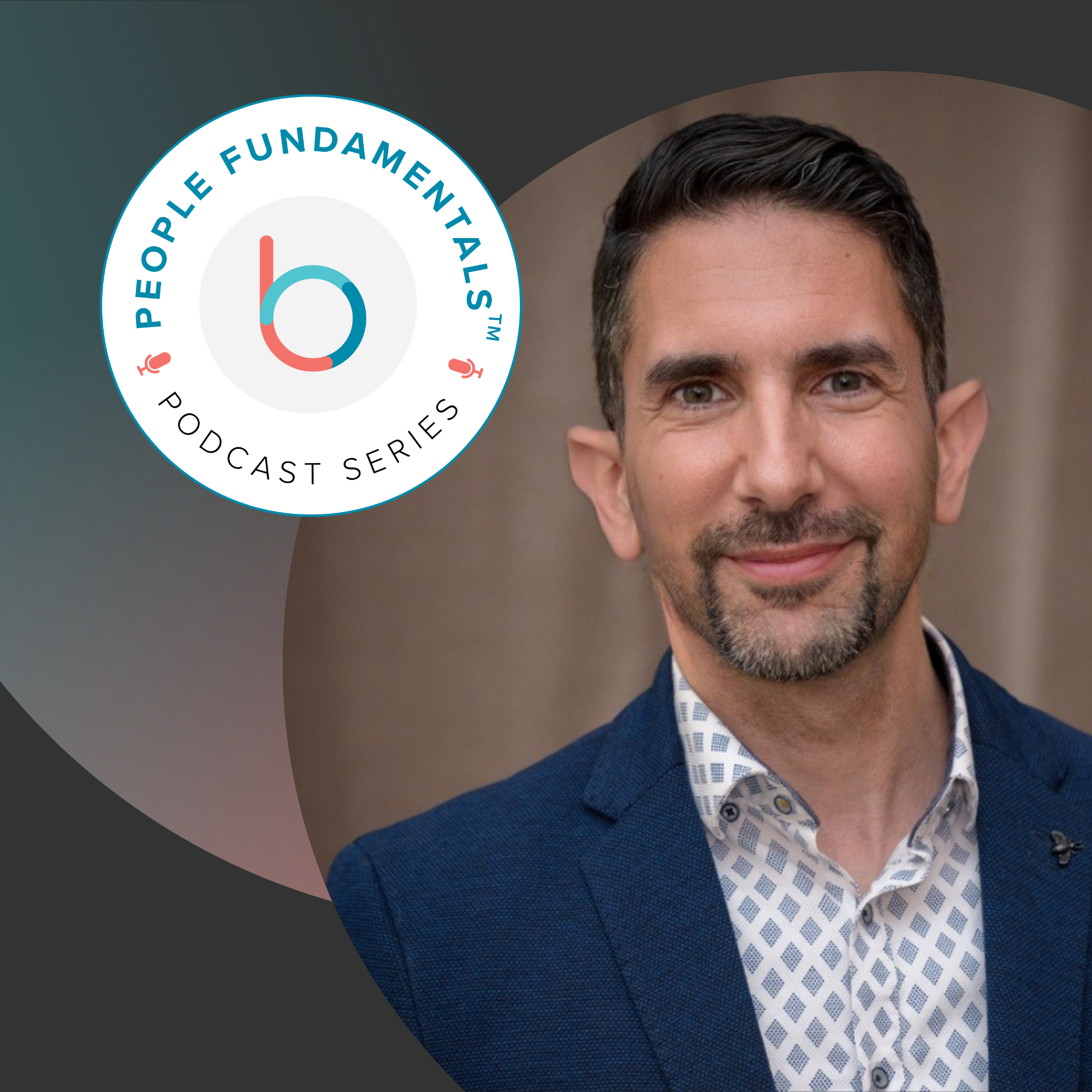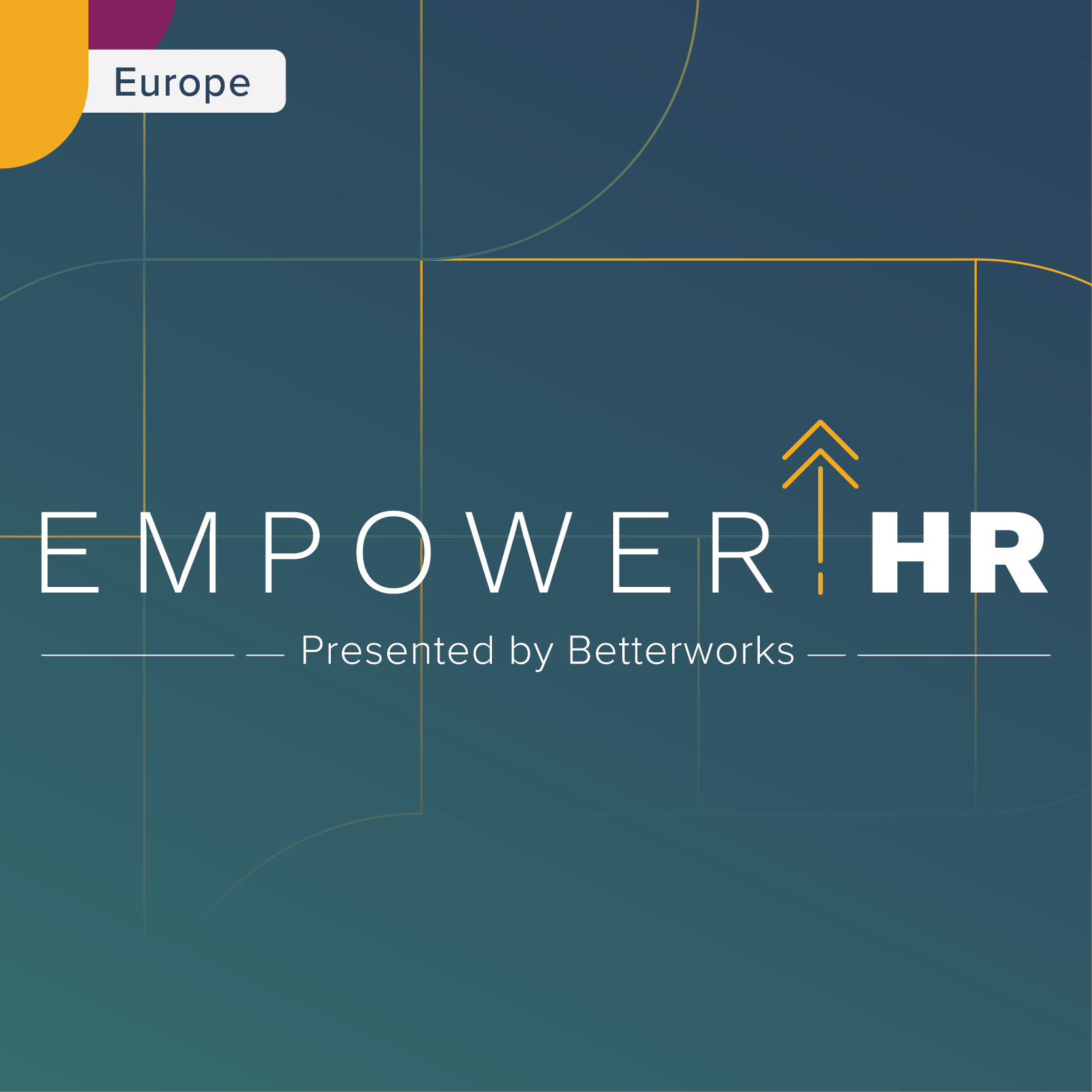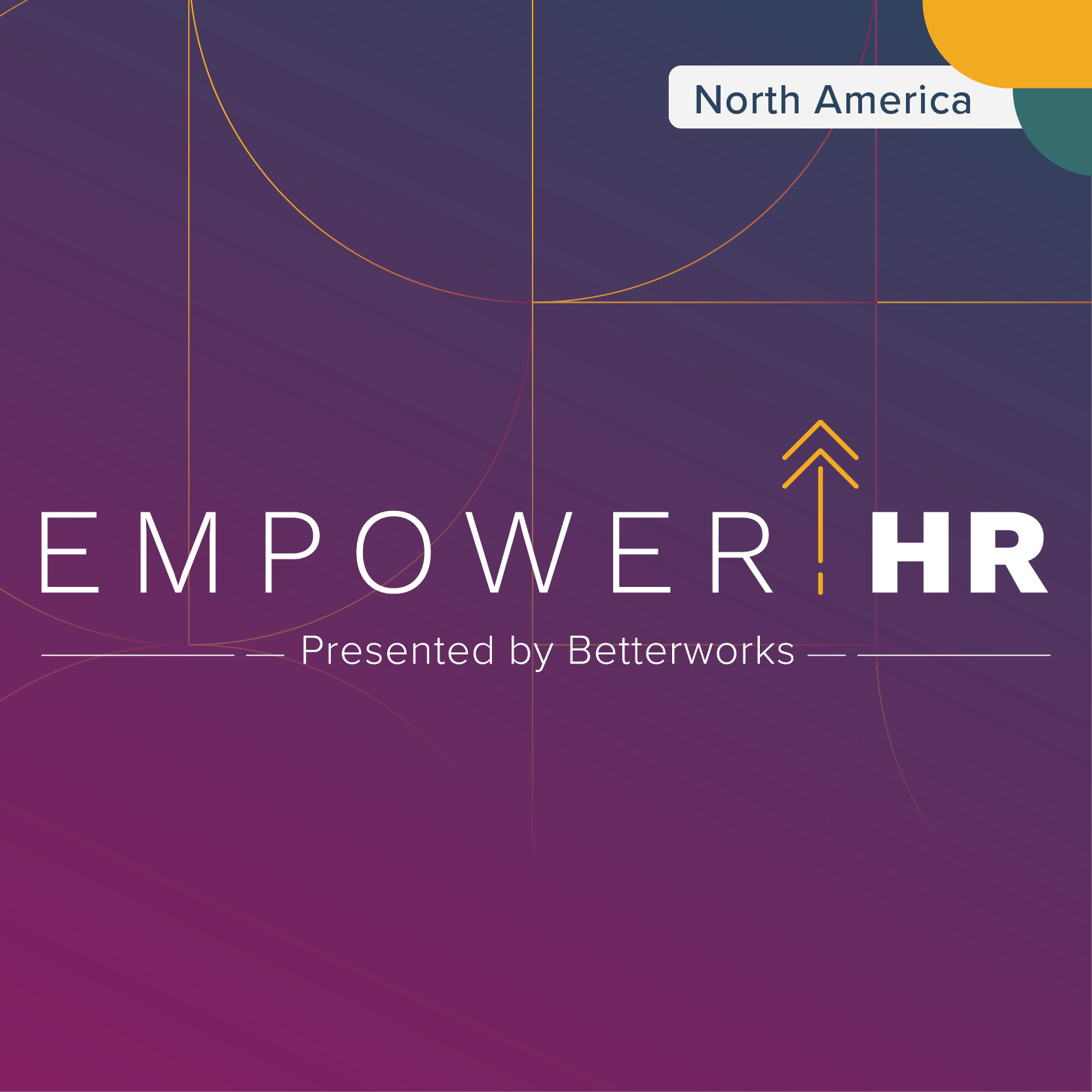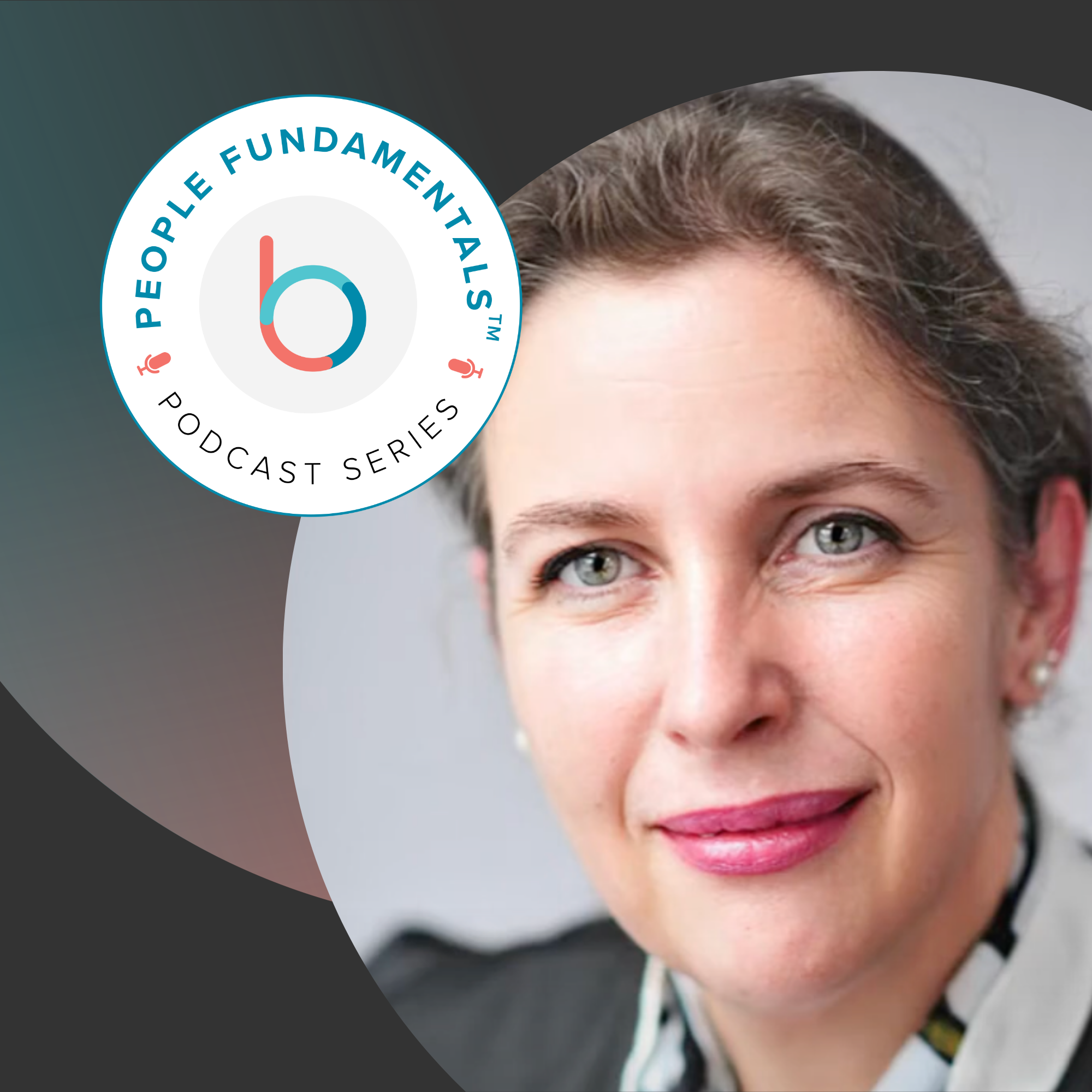Many workers today struggle to connect with their managers and peers — and they’re suffering for it. As many as 2 out of every 5 employees surveyed for Betterworks’ 2024 State of Performance Enablement report aren’t having the crucial conversations they need to grow.
That puts your business at a disadvantage.
Why? Because conversations are the levers of strategic, transformational change.
“The right words at the right time can be life-changing,” said Riaz Meghji, author of “Every Conversation Counts: The 5 Habits of Human Connection that Build Extraordinary Relationships,” during the People Fundamentals webinar session “Every Conversation Counts: Building High-Performance Organizations One Relationship at a Time.” “And if we want to have these game-changing conversations, as leaders, with our employees, with our stakeholders, I believe it’s not just about words,” Riaz continued. “It’s about the power of questions because the quality of our questions will determine the depth of our connections.”
Discover how to build habits of intentionality, empathy, and acknowledgment to level up your conversations — and relationships — in the workplace. You can also listen to our People Fundamentals podcast to catch his presentation.
Subscribe wherever you listen to podcasts: Apple Podcasts | Spotify | YouTube Music
Make your small talk bigger
Daily small talk presents pockets of space for meaningful engagement throughout the workday — but most people shy away from deeper questions. “How many of us have looked at small talk as this defense mechanism that prevents us from the embarrassment of getting emotional in front of someone that we don’t know?” Riaz said. “Or maybe we’re afraid we’re going to hit a nerve with that person when they’re truly struggling, and we’re not ready for their reaction. So we keep it at the surface.”
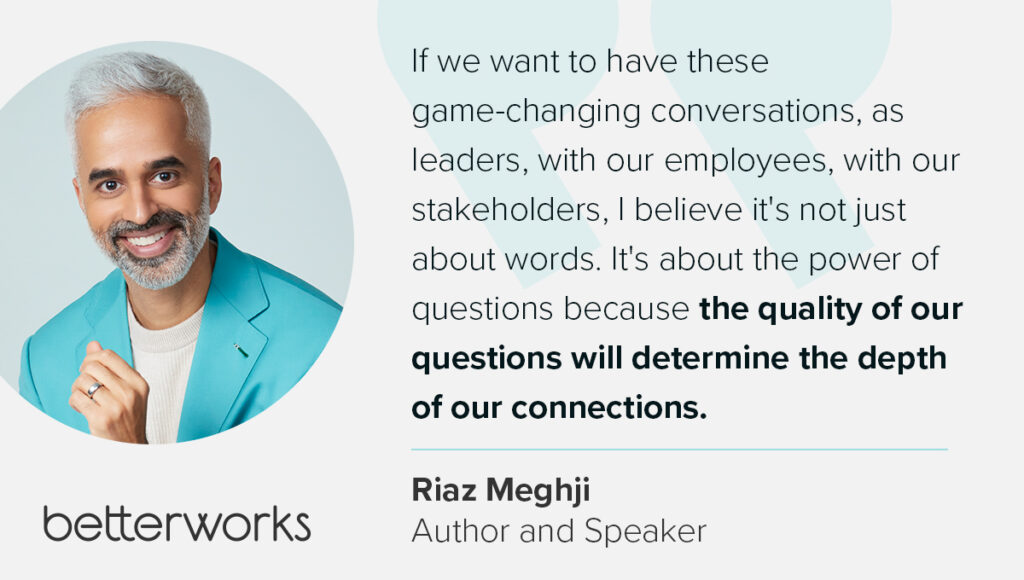
By making small talk bigger, or more purposeful, you can lean into deeper connections. Start by asking more intentional questions — questions ChatGPT can’t answer, Riaz said. When he was a reporter, Riaz initially asked the people he interviewed transactional questions, with straightforward answers. “I slowly began to realize I’m missing out on their humanity,” he said. “So I found the questions that started with ‘how’ and ‘what’ led to more expansive emotional responses than ‘who,’ ‘when,’ and ‘where.’”
A question like, “What’s a breakthrough you’ve had recently?” brings someone back to a meaningful moment, and something they might be proud of or excited to share with you. Leaders can build trust by going first and answering the question themselves, giving their team members permission to share their personal experiences.
Riaz says that being deliberate in our approach is also critical: “If we move too fast, efficiency becomes the enemy of human connection.” He encourages leaders to ask questions that empower people. Asking the right questions can have a tremendous impact, even changing the trajectory of a person’s career.
David Landman, formerly the global head of talent development at Goldman Sachs, and a member of Betterworks’ HR Advisory Council, joined Riaz to share how a conversation years ago encouraged him to step into a much larger role being vacated by his well-respected boss — but one he wasn’t sure he was ready for. “I had a really fantastic mentor who I think both asked me the right questions, but also shared their perspective on me and my capabilities that led me to have the bravery to have that conversation, and I got the job. I can root back a lot of my success to today to that moment.”
Be assertively empathetic
People go to great lengths to avoid conflict, especially at work, Riaz pointed out. But conflict itself isn’t the greatest challenge. “I think it’s a lack of acknowledgment surrounding the conflict we’re experiencing,” Riaz said. “Are we allowing people to feel seen in the struggles that they’re having, so we can be collaborative in these conversations and have productive disagreements?”
Riaz suggests approaching conflict head-on, but from an empathetic perspective. If you address an issue with an employee and receive a heated reaction, lean into that. “Share with me what makes this so important for you,” Riaz suggested asking. Invite team members to reframe the challenges they’re experiencing from a more positive perspective — and reinforce your role as their supporter, not an opponent in their efforts. “This is the two of us versus the challenge,” Riaz said. “This isn’t me versus you.”
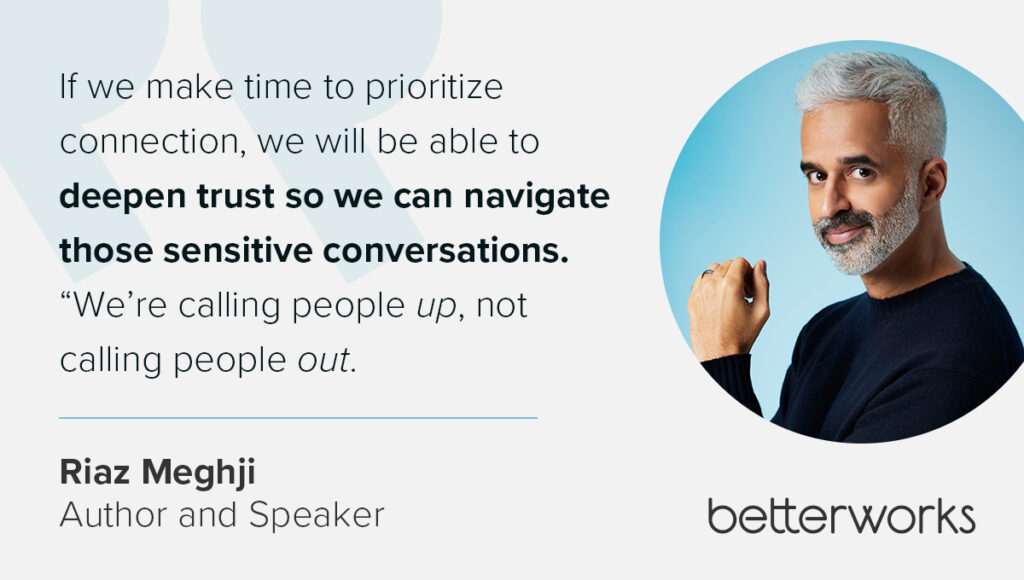
Make people feel famous
Your employees want to be recognized, acknowledged, and celebrated for the impact they create at work. But many managers struggle to tailor acknowledgement to each person. “We miss out on the moment of articulating the impact of their contribution,” Riaz said. “So how can we practice specificity with our praise to make it a superpower?”
Don’t wait to tell someone they did good work, or just say “good job” without recognizing their impact on the team or the organization. Be urgent with your praise, and articulate your appreciation for what they’ve done and how it’s driven a wider impact. “If we make time to prioritize connection, we will be able to deepen trust so we can navigate those sensitive conversations,” Riaz said. “We’re calling people up, not calling people out.”
By leaning into meaningful conversations, you can cultivate the types of connections that drive real business impact — empowering you to “out care” your competition, Riaz said. Learning to ask the right questions helps you tap into an innate human ability: “Remember the power each and every one of us have,” Riaz said, “and it is this: that we are always one conversation away from living a completely different life.”
To learn more about Riaz’s strategies for fostering conversations and connections at work, catch the complete webinar on demand.
Level up your communications
